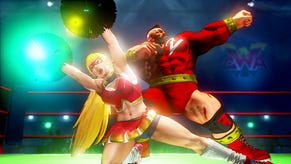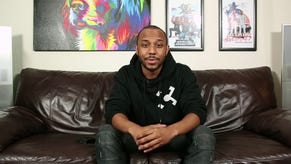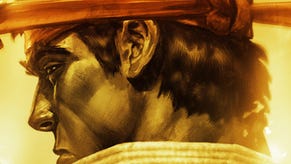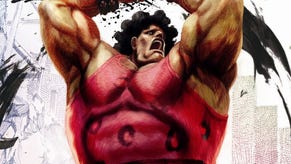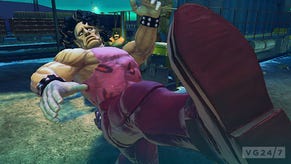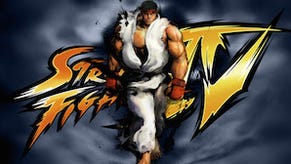Getting Strong Now: The Pros Share Their Training Tips for EVO
Daigo, Combofiend, and Seth Killian on how they prep for the fight game community's most prestigious tournament.
This article first appeared on USgamer, a partner publication of VG247. Some content, such as this article, has been migrated to VG247 for posterity after USgamer's closure - but it has not been edited or further vetted by the VG247 team.
Shhh. I know. You're freaking the hell out because EVO is this weekend. Sure, your plane ticket is ready, your hotel is booked, and that beautiful custom stick of yours is sitting by your suitcase, ready to be your only trusted companion on this pilgrimage to Las Vegas.
But logistics aren't the problem, though. Staring bleary-eyed into that foggy mirror, you're terrified of the contest itself; your muted cries into the night deafening in the silence. "Have I practiced enough?" you ask. "What will the atmosphere be like?" you wonder. "What if I run into Daigo or Xian in the first round of pools?" you shudder.
Worry not, baby birds, for we will feed you. Even though time is certainly running short for your EVO prep, we contacted three luminaries of the fighting game community to drop some sage advice for last minute training, Apollo Creed-style. While hard work and practice will certainly trump sideline advice, a little knowledge from the FGC mountaintop certainly can't hurt (but if you run into the Clubber Langs of Daigo and Xian in early rounds, you still might be on your own).
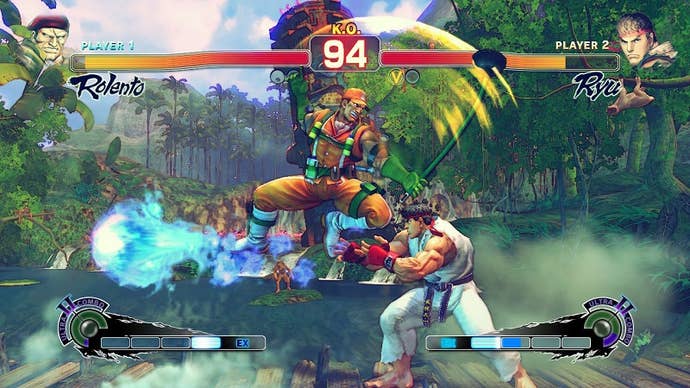
The Fiend
Peter "ComboFiend" Rosas is a community manager for Capcom, and is the living link between the developer of one of the biggest fighting game franchises in the world and the audience that plays it. Though he doesn't participate in tournaments any longer (he's a company man, after all), he knows his way around a major or two, EVO included.
On training: "I didn't really have a training regime. Any practicing I did was to make up for anything I felt deficient at. For me, it was all about feeling comfortable. I would ask myself whether I could perform what I wanted (combo, rush sequence, anti-air, etc.) at will, and if I could, it meant that I could probably do it in a tournament reliably. Once I felt competent on performing a tactic or combo, I would just play people to make sure what I thought was effective was actually effective. I would also watch videos of others using the same character for possible ideas."
On the jitters of a major tournament: "Nerves are a big part of doing well at tournaments. When I first started in tournaments, my hands would shake from nervousness, which would cause me to miss a lot of things. That in turn would make me angry because I knew I was better than what my performance showed. To solve for that, I began to accept a win as a win, regardless of how I pulled it off and not think of how much better I could've played. I would also look at my right hand and try to reduce the shaking to the same level as when I'm not nervous. That would help to calm me down and keep my mind clear, which allowed me to maintain my game plan in the matches that followed."
"Players should realize they're not going to play as awesome in a tournament as they do in casuals and shouldn't beat themselves up for not doing so. That's a recipe for disaster. If anything, think about what went right (or wrong) during the match, lock it into your memory and go onto the next fight as calmly as possible
."Some last minute tips: "It's all about comfort and being able to reliably pull off what you've been practicing. If you can pull off something with ease (aka difficult combos), work on situations or anti-airs. I'd even recommend finding out a gimmick or two you can pull off. You'd be surprised how fast players unravel when hit with something unexpected. Also, watch videos. It's good to stay up to date on what tactics others are using with the same character or against your character."
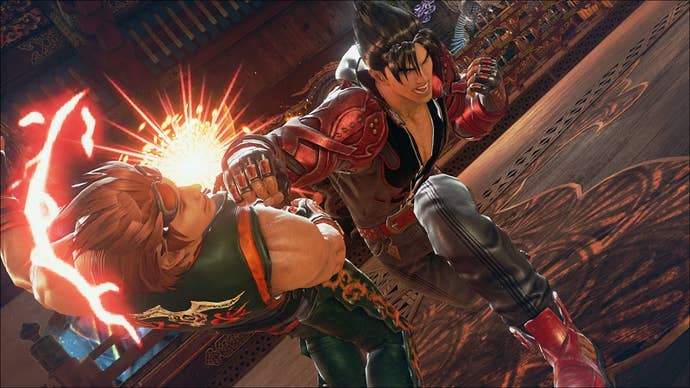
The Beast
If you play fighting games, you know Daigo Umehara. Quiet and unassuming if you saw him on the street, Daigo is perhaps the most famous fighting game player in the world, not simply in his native Japan. Best known for his YouTube-sensation Third Strike comeback against Justin Wong at EVO 2004, Daigo exemplifies "cool under pressure," even as his high damage/ high risk style of play earned him the nickname "The Beast." (Note: Answers translated by his business manager).
On the basics: "I don't think there's a set rule [for training], but I believe in basics. Without a solid foundation, you can't build anything on it. If you have any character match or combo you don't feel comfortable with, you go at it until you get it. Then you move on to next on your list of weakness. The consoles are very good at helping you with that. Live matches will be a place where you can apply your practices and learn how to adjust your play to each player style. You will grow each time you match against a live player – but the key is you take each of those practices seriously and reflect on yourself. You have to think."
On confidence: "I think it's unavoidable to feel overwhelmed or nervous at a big tournament, especially at EVO for its scale in number and competitive level. Most people, if not all, do experience that. But your belief in yourself would be your fallback -- the confidence that derives from your hard work. If you can say to yourself that you did your very best, you can override the overwhelming feeling."
On live opponents vs. online (or consoles vs. arcades): "They serve different purposes. Consoles are suitable for drilling each basic move including combos. The arcades are where you apply and try out what you have acquired against in live against live opponents. And you further learn and grow from each game. Certainly you could do that with consoles, the arcades hold a very special place in my heart. There is a distinct air and atmosphere I am fond of."
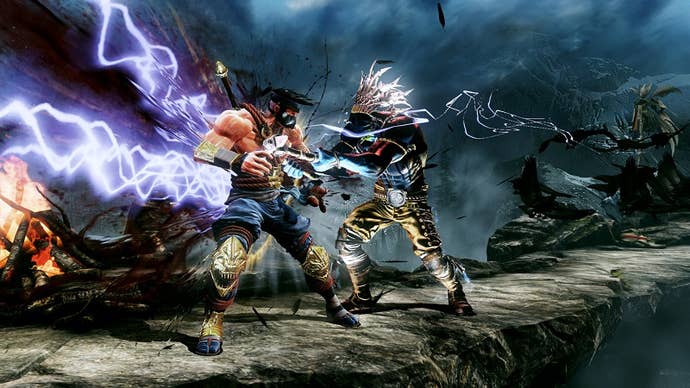
The High Priest
Just considering his fighting game resume alone, Seth Killian would be an impressive specimen. An early tournament player when fighting games were in their infancy, Killian went on to not only co-found EVO, but also be the first player-turned-employee for Capcom as a mouthpiece for the larger FG scene. Now a producer for Sony Santa Monica, he regularly attends EVO to commentate big matches. Articulate and insightful, when both the player base and the media seek deeper Dragon Punch gestalt, they look to their high priest. They look to Seth Killian.
On major tournaments: "One thing to keep in mind: everyone, from the most seasoned pros to first-time tournament players, gets nervous. It even has a name: "first game jitters." There's only one proven way of overcoming that, which is just exposing yourself to more of it. If you can survive your first match, it will get better, and if you can keep coming back to tournaments, from local to international, it definitely gets better with time. A really good approach is to just have a core basic strategy, and do your best to stick to it. The more you can avoid having to think on the fly, or perform really tricky techniques, the more mental resources you'll have to focus on the match and your opponent's choices. A lot of fighting games really do boil down to the smart allocation of mental resources, so the less you have to think about your game plan, the more you can think about your opponent, which is a really strong position."
On preparation: "Grinding out specific combos is definitely important for some characters, especially as many of the highest damage options can require 1-frame precision. If you go for them and fail, you not only lose the damage you might have done, you're also often open to being punished. This means if you're going to go for a combo, you want to be executing at a very high percentage (not "I did this once in training mode!" but "I can do this with my eyes closed 99% of the time").
If you don't have the fanciest combos down perfectly, that's okay - just stick to what you know you can do under pressure. It's may not be optimal in terms of damage, but it avoids the pitfalls of screwing up, then being angry at yourself for screwing up, etc., which is usually a death-spiral. In tournaments, it's all about playing the percentages. Often you can score wins without doing anything spectacular, and just capitalizing on your opponent's mistakes. This means minimizing your own mistakes is really crucial, so sticking to basics is a legitimate strategy for anything below the very highest levels of competition.
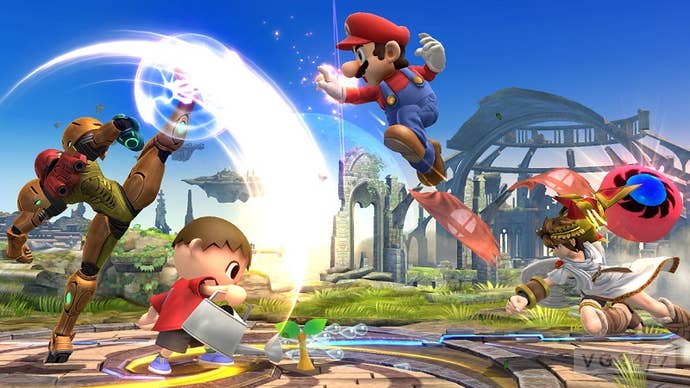
As games evolve, specific matchup knowledge is also extremely important. You need to have at least a basic idea of how to approach every character in the game, or you can lose to easily-avoided tricks. From there, elite players (who know they can beat most other competitors with their basic game plan) often focus their training on studying the tactics of other specific elite players. They'll study their matches to try and spot patterns or weaknesses, take notes, and consult them if they cross paths in the tournament.
Among the best of the best, there's a fair degree of formal, structured training that can look a lot like training for other kinds of competition. You grind combo execution like you'd do drills or practice shooting free throws, play some regular matches (like scrimmaging), and "watch the tape" of other players to pick up new trends and meta-game developments. Daigo Umehara in particular has made a point in recent years to mix in broader physical training a part of his routine, with daily gym visits, which I think is extremely valuable."
On over-thinking it: "Probably the #1 mistake people make at tournaments is to spend time staring at the bracket, carefully scrutinizing who is in your pool, and theorizing about "If I beat so-and-so, and that guy beats that other guy, I'll have to face Famous Guy in the third round!" That kind of stuff burns a ton of mental resources, and makes you worry about things that might not even happen. Playing well requires staying in the moment, and playing well in a tournament requires conserving your mental energy as much as possible. Worrying about a bracket works against you on both of those fronts. You aren't in the moment because you're thinking about multiple possible futures, and you are wasting mental resources you should be preserving for your next match. Put simply, you never need to think further into the future than your next match. Any more than that just doesn't help, and gets in the way of your doing what you need to do, so don't worry about the bracket, and just focus on executing your game plan.
Can you imagine how Frodo would have reacted if you told him in advance everything he'd be up against in his battle against Sauron? He would have freaked out and collapsed under the enormity of the task. Tournaments are similar. If you think about everything you have to do, all the greats you'd have to beat, it can quickly start to seem impossible. Instead, just take things one step at a time. Realize your job is only ever to beat the one guy you are facing next--just one opponent! If you approach competition like this, even world-class challenges like EVO suddenly look less foreign and impossible, and more like what you already do."

